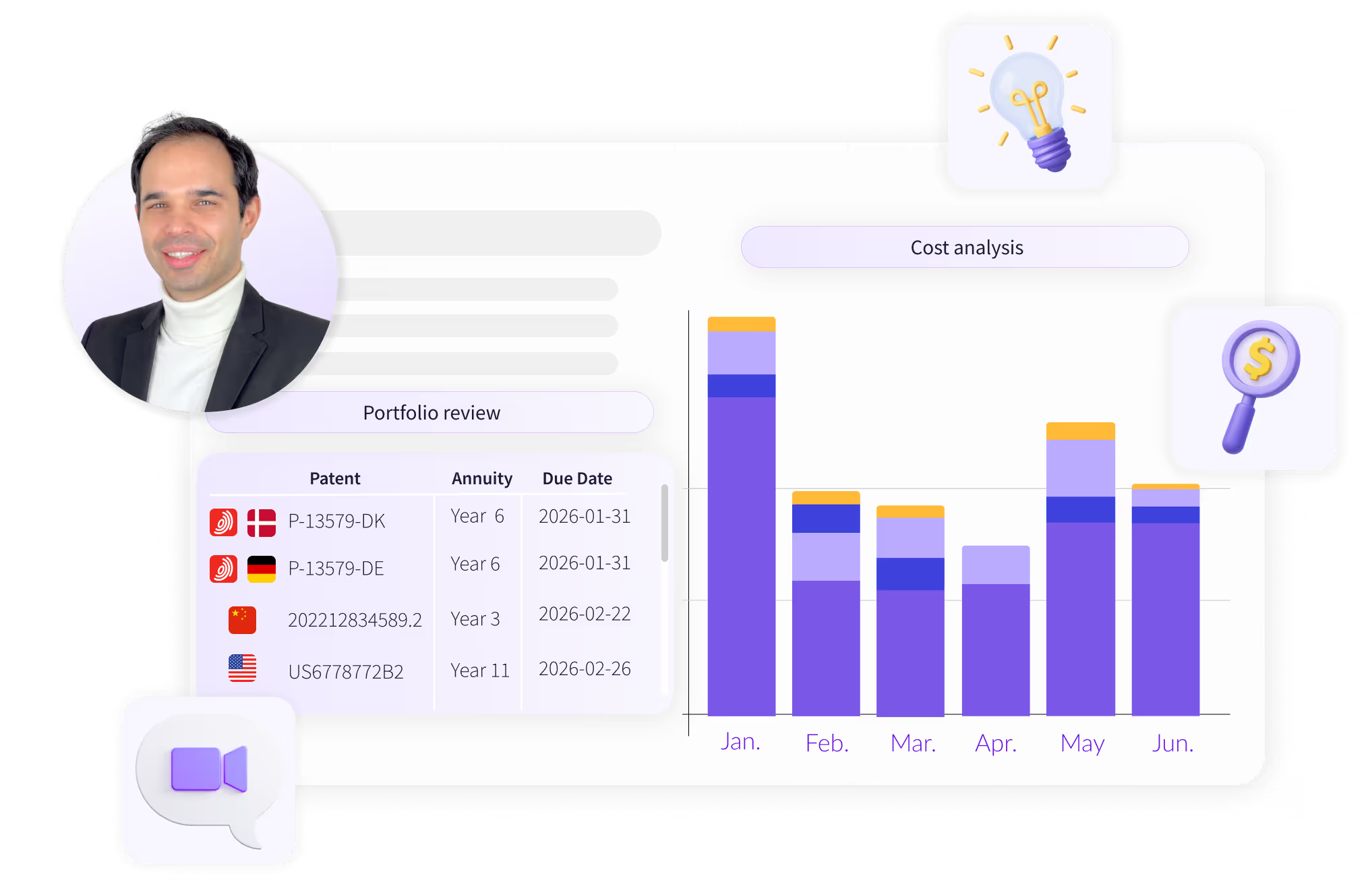TRY OUR NEW (FREE) IP RENEWAL COST CALCULATOR
Calculate.avif)
The total number of AI-related patents published in the last five years has exceeded the total number of patents published in all previous history, according to a report by the World Intellectual Property Organization.
Artificial intelligence is reshaping the IP industry by offering innovative solutions that streamline and enhance the process behind the IP application and simplify manual work. While innovation is a key driver of AI, it is also influencing the way we handle patent applications today and presents new challenges that need to be addressed through careful policy and regulatory efforts.
AI technologies, such as machine learning, natural language processing, and computer vision, have been integral in transforming IP application processes. These tools are used to automate complex and data-intensive tasks, which not only streamlines the application process but also reduces the potential for human error, ensuring a higher accuracy rate in IP filings and examinations.
AI can help streamline the patent application process in the following steps:
AI tools perform comprehensive searches across global patent databases, analyzing documents much faster than human counterparts and identifying relevant prior art efficiently.
For instance, tools like Luminance and ROSS Intelligence can quickly analyze massive amounts of legal documents and carry out in-depth legal research. Also in IP offices:
“The integration of AI in IP offices significantly impacts both the speed and quality of application reviews. For example, the European Patent Office (EPO) has implemented AI tools to assist with the examination of patent applications. These tools help in analyzing large volumes of technical information and prior art, which speeds up the review process while enhancing the thoroughness and precision of the examinations.” Bruno Gavino (Founder and CEO, CodeDesign)
AI-powered software assists in drafting patent applications by suggesting standard language and formatting, ensuring compliance with IP office requirements.
AI tools like PowerPatent and Drafting LLM can streamline patent applications by generating comprehensive claims, drawings, and descriptions.
AI tools can analyze the potential for patent infringement by comparing the proposed invention against existing patents, highlighting any potential conflicts or issues. This process helps innovators identify potential legal risks before investing time and resources into developing a product.
For example, ClaimChart automates the process of identifying potential licensees in order to streamline the analysis of patent infringements.
“A significant way AI can help is in assessing the value of patents. Knowing the value of patents is extremely important for any IP strategy. AI tools can analyze factors such as how often a patent is cited, its legal history, and its relevance to the industry to gauge its value. This provides a much clearer picture of what a patent could be worth, helping companies make informed decisions about buying, licensing, or selling patents.” Eric Croak, CFP (President, Croak Capital)
The integration of AI in IP applications also brings forth new regulatory challenges and frameworks. Collaboration between industry stakeholders and policymakers will be essential to ensure that AI technologies are utilized ethically and responsibly in the field of intellectual property.
The United States Patent and Trademark Office and the European Patent Office have both issued guidelines to address these challenges. For instance, the USPTO recently updated its guidance on patent eligibility, which includes considerations for inventions created with the aid of AI, emphasizing that while an AI system cannot be credited as an inventor, its use in the invention process does not preclude patent eligibility.
Similarly, the EPO requires that IP applications clearly define the contribution of AI versus human inventors, ensuring clarity in ownership and inventive step documentation. Therefore, the role of AI tools can be implemented in a way that eases the process while maintaining human creativity.
AI-enhanced systems can reduce the time spent on patent applications, while also improving the accuracy of these searches by minimizing overlooked documents and false positives. However, it is worth considering both the benefits and drawbacks of AI tools.
Benefits:
Challenges:
As AI continues to evolve, its integration into IP practices promises to redefine the paradigms of intellectual property applications and demands that professionals keep updated about the different opportunities in IP management that AI can offer.
“Hence, continuous learning will be essential to stay competitive in this evolving landscape. This change would require professionals adept at using artificial intelligence to excel in patent searches and analysis, i.e., faster and more accurate processing of patents.” Dhari Alabdulhadi (CTO and Founder, Ubuy New Zealand)
If you are an intellectual property holder yourself and wish to optimize your IP portfolio by automating your patent renewals, check out the PatentRenewal.com solution or book a demo here with one of our experts.
Interested in a free IP renewal consultation? Benchmark your current IP renewal setup and costs against market standards.
